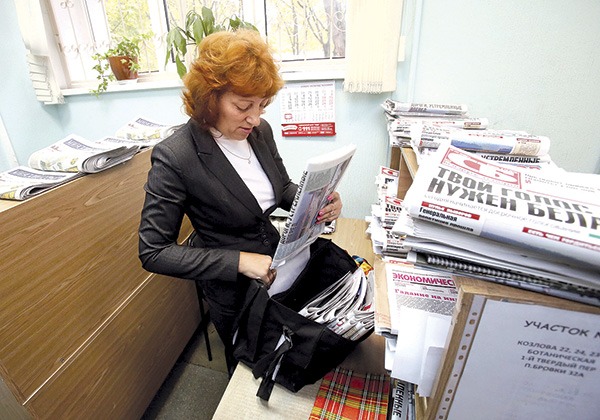
Postal worker Svetlana Pasechnik
Those who deliver mail carry great responsibility, delivering not just letters and birthday cards but pensions, newspaper subscriptions, and much-awaited parcels from online shops. They can even help residents pay their utility bills from home and make money transfers.
Belpochta tells us, “We employ 7,908 postal workers in Belarus, most of whom are women, aged 44-49. We also have lots of young people, and vacancies are always filled. There’s good opportunity for career advancement and social bonuses. Last year, we received a certificate for being ‘Best Employer’.”
A postal worker’s salary, on average, stands at about 4,981,660 Belarusian Roubles (higher in the capital and in regional centres and less in small towns). Pay reflects duration of working day (7-8 hours in large cities against 4-7 hours in rural areas), the number of services rendered (major postal and non-profile) and length of time spent with a department. Most workers cover up to 2,000 flats in cities, while those working in rural areas deliver to 1-3 settlements.
Many Belarusian regions have isolated farmsteads, with some settlements comprising just a handful of houses, located amidst fields. All need connection with the external world, but it’s difficult to cover large distances on foot, so postal workers covering more than 10km use bicycles.
“Postal employees are taught traffic rules,” notes Belpochta. “Since most of their working day is spent outside, they receive a uniform and footwear, for summer and winter, and travel tickets. They work five days a week, being tied to the release of newspapers and magazines, but never on Sunday. Those working with rural post offices also rest on Monday, while those in cities have a day-off in the middle of the week, in line with a flexi-time schedule.”
By Dmitry Ampilov











